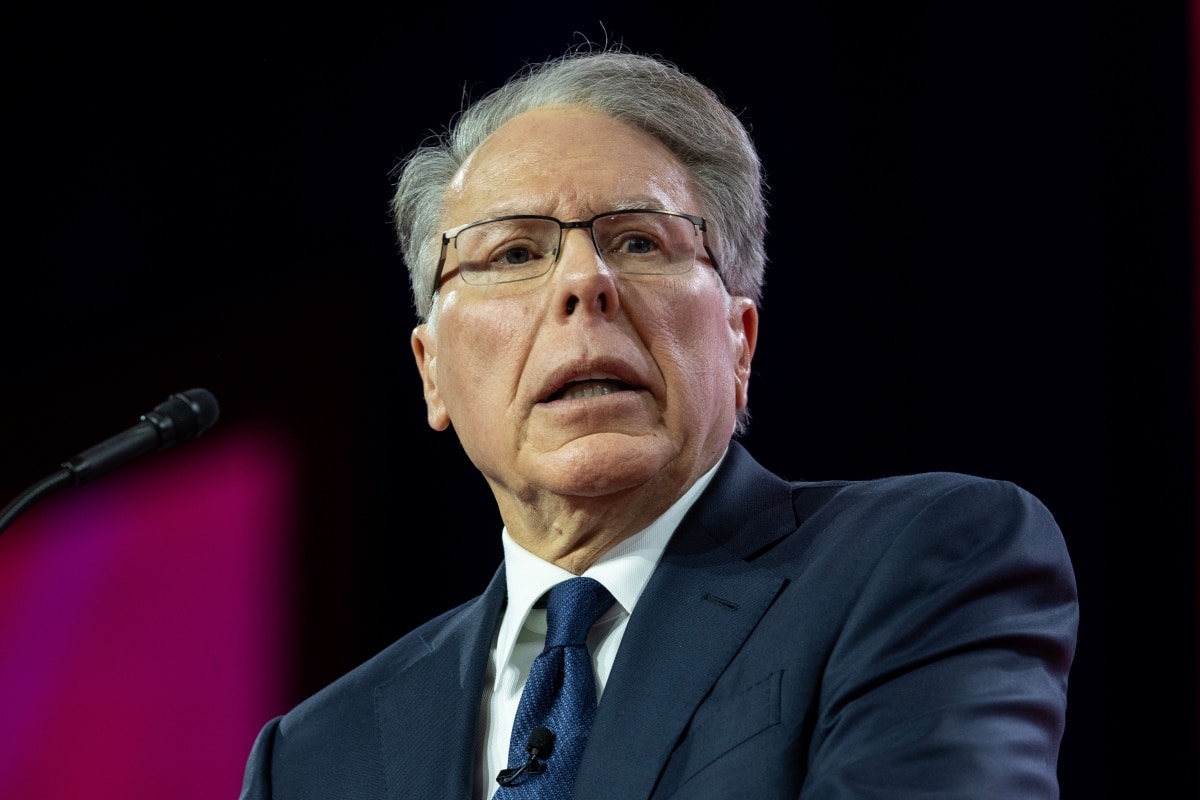Amid declining membership and a looming legal battle, Wayne LaPierre has stepped down as the National Rifle Association’s chief executive, leaving the organization at a critical juncture as it faces allegations of financial impropriety and a pivotal civil trial initiated by the New York attorney general. Here’s the full story.
Jump or Pushed?
In a surprising turn of events, Wayne LaPierre, the long-serving chief executive of the National Rifle Association (NRA), announced his resignation at the end of this month. While LaPierre, 74, attributes his departure to health concerns, the timing raises eyebrows as it coincides with an impending civil trial in New York.
The trial, initiated by the state’s attorney general, Letitia James, alleges widespread misuse of NRA funds, setting the stage for a legal showdown. In a brief statement released by the NRA on X (formerly Twitter), LaPierre expressed his unwavering support for the organization’s mission to defend Second Amendment freedom.
Despite citing health issues, the abrupt timing, just days before the trial, prompts speculation about the strategic nature of his resignation. This move leaves the NRA in a leadership transition at a critical juncture, adding an extra layer of complexity to the ongoing legal battles.
Declining Membership and Financial Struggles
The NRA has faced a decline in membership over the years, a trend exacerbated by the surge in mass shootings across the United States. Legal challenges alleging corruption within the organization and financial struggles have further tarnished its reputation.
The Guardian reported in 2020 on internal dissent among members and donors regarding the NRA’s spending practices, management, and the growing disconnect between leadership and rank-and-file members.
As LaPierre steps down, Andrew Arulanandam, the head of NRA’s general operations, is set to assume the role of interim chief executive and vice president. Arulanandam’s leadership during this transitional period will be crucial for the NRA as it grapples with both internal and external challenges.
The Legal Battle Unfolds
The imminent civil trial in New York, scheduled to begin on Monday, is a pivotal moment for the NRA. Letitia James, the state’s attorney general, has leveled serious accusations against LaPierre and other executives.
The lawsuit alleges the illegal diversion of tens of millions of dollars from the NRA for personal use, including extravagant trips and questionable contracts. If successful, James seeks to ban LaPierre and his cohorts from serving in leadership positions within any nonprofit or charitable organizations operating in New York, effectively severing their ties with the NRA.
Letitia James paints a damning picture of the NRA in her 168-page lawsuit, revealing a culture of “brazen illegality.” The document exposes alleged financial misconduct, lack of transparency, and negligent oversight within the organization. These revelations, if proven in court, could have far-reaching consequences for the NRA and its leadership.
Cracks in the NRA’s Foundation
The Guardian’s 2020 report highlighted internal strife within the NRA, with members and influential donors expressing concerns about the organization’s spending practices and management.
The widening gap between the leadership and the rank-and-file members further strained the NRA’s unity. As the legal battle unfolds, these internal divisions may come to the forefront, shedding light on the underlying issues that have plagued the organization.
Wayne LaPierre’s resignation as the chief executive of the NRA marks a significant moment in the organization’s history. As the legal proceedings commence, the NRA finds itself at a crossroads, grappling with leadership changes, declining membership, and serious allegations of financial impropriety.
The outcome of the trial will not only determine the fate of LaPierre and other executives but may also reshape the future trajectory of the National Rifle Association.
The post NRA Chief Steps Down Prior to Looming Legal Battle first appeared on Edge Media.
Featured Image Credit: Shutterstock / lev radin.
Grant Gallacher is a seasoned writer with expertise in politics and impactful daily news. His work, deeply rooted in addressing issues that resonate with a wide audience, showcases an unwavering commitment to bringing forth the stories that matter. He is also known for satirical writing and stand up comedy.

